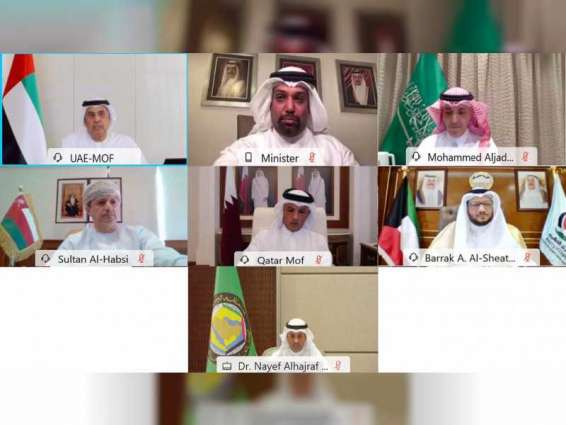ABU DHABI, (Pakistan Point News - 26th Oct, 2020) Obaid bin Humaid Al Tayer, UAE Minister of State for Financial Affairs, has said that the UAE is keen to enhance coordination and communication with GCC countries with the aim of achieving comprehensive and sustainable economic growth.
Al Tayer said this while chairing yesterday the 112th meeting of the GCC Financial and Economic Cooperation Committee, which took place remotely.
The meeting discussed topics that support joint GCC action and the recommendations and results contained in the 59th Meeting of the GCC Undersecretaries of Ministries of Finance Committee, where the necessary decisions were taken in their regard.
Younis Haji Al Khoori, Undersecretary of Ministry of Finance and representatives from the Federal Customs Authority, and the Federal Tax Authority, as well as GCC Ministers of Finance and the Secretary-General of the Cooperation Council for the Arab States of the Gulf, attended the meeting.
In his speech, Al Tayer stressed the importance of this meeting in promoting and pushing forward joint GCC action and discussing GCC financial and economic integration, noting it is a priority that requires focus in the next stage.
He stressed the need to activate what was stated in the vision of the Custodian of the Two Holy Mosques King Salman bin Abdulaziz (session 36 - December 2015), and the Riyadh Declaration (session 40 - December 2019), which tackles many of aspects, foremost of which is achieving economic unity among the GCC countries by 2025.
He said, "We affirm the UAE’s keenness to move forward with the concerned officials in the GCC countries, to raise and work on joint economic work issues, in order to reach economic unity among member countries by 2025."
The meeting discussed the recommendations of the GCC Committee of Governors of Monetary Institutions and Central Banks, the minutes of 7th meeting of the committee of heads and directors of tax administrations of the member countries of the organisation, as well as issues related to the GCC customs union and its common market. Participants also reviewed the vision of the GCC Secretariat-General for strengthening bloc's joint action in the financial and economic sectors for the post-COVID19 period.
On the sidelines of the meeting, a joint meeting of the Financial and Economic Cooperation Committee and the GCC Committee of Governors of Monetary Institutions and Central Banks was held with the Director-General of the International Monetary Fund.
The meetings discussed the economic prospects and policy challenges in the GCC countries, the urgent priority in continuing to meet the health and economic needs arising from the COVID-19 pandemic, and the long-term consequences of the pandemic on the global economy - as the precautionary measures taken to limit the spread of the pandemic have led to a sharp decline in economic activity around the world, especially in the second quarter of 2020. Also discussed was the need for further structural reforms to promote private-sector-led growth and job creation.
Obaid Humaid Al Tayer indicated that the GCC countries had announced stimulus packages worth more than US$100 billion to support monetary and financial policies to meet the exceptional circumstances that the world is witnessing today.
He stressed the importance of financial adjustments in future budgets and reforms related to expenditure and revenue policies that have now become more important to the region than ever before.
He said, "Resource-rich countries must diversify their economies away from dependence on oil and finance, and resource funds can play an important role in such a transformation. The GCC countries regard economic diversification as a top priority for policymakers, with the region undergoing major social and economic changes accompanied by structural reforms aimed at enhancing citizens’ happiness, the business environment, and institutional frameworks."
He added, "The Gulf labour market is characterised by the presence of a large number of expatriate workers, with an average of about 50.4% of the total population. It is therefore important to assess the impact of remittances on the GCC countries, especially since these outflows constitute a significant share of GDP. Given the different pressures that this flow can bring, whether on foreign reserves, fiscal and monetary policies or on investment, I think the time has come to address such an urgent issue."
The GCC Undersecretaries of Ministries of Finance Committee previously held their 59th Meeting in preparation for the 112th meeting of the GCC Financial and Economic Cooperation Committee, which was chaired by Younis Haji Al Khoori.
The Ministry of Finance leads the UAE’s efforts to achieve GCC economic integration, with the aim of enhancing the role and position of the UAE at the bloc market level, and supporting the nation’s general policy towards strengthening the organisation's economic integration, to maximize positive returns for individuals and companies, and contribute to achieving growth and prosperity for the member countries.




